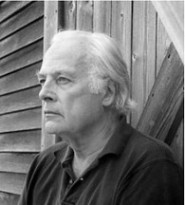Individualism, True and False
Thus for Hayek the crucial difference is over whether societies (institutions) are largely spontaneous, emergent, and organic–or designed. His great concern was that rationalistic individualism, in awe of the mind’s ability to engineer solutions, too readily leads to the centralization of power and totalitarianism.
So Sheldon Richman reminds us of one of the central points of Hayek’s insights on the nature of individualism at The Freeman Online. Richman suggests that for Hayek, the starting point of social analysis is less man’s egoism or altruism, than the fundamental limits on his capacity to know. Richman quotes Hayek:
All the possible differences in men’s moral attitudes amount to little, so far as the significance for social organization is concerned, compared with the fact that all man’s mind can effectively comprehend are the facts of the narrow circle of which he is the center; that, whether he is completely selfish or the most perfect altruist, the human needs for which he can effectively care are an almost negligible fraction of the needs of all members of society.
This limitation of knowledge is a constraint that confronts philanthropists as well as statesmen, and its implications in both realms require deeper consideration.




